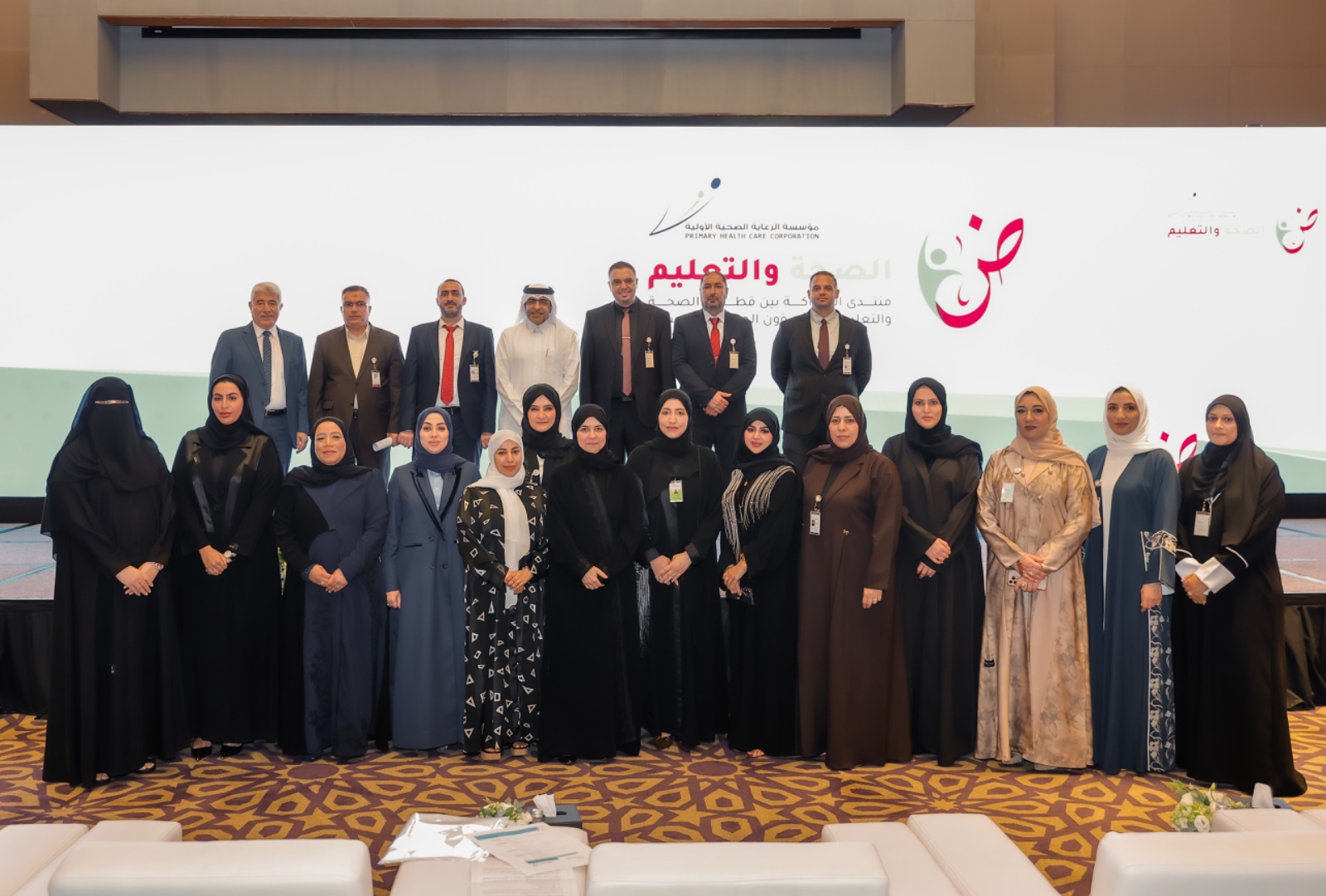PHCC Concludes the Annual School Health Forum

The Primary Health Care Corporation (PHCC) concluded the Annual School Health Forum last Sunday, with the attendance of Dr. Samya Ahmad Al Abdullah, Assistant Managing Director of Operations and Clinical Affairs and Executive Director of Operations at PHCC, alongside wide participation from government school principals and vice principals, and representatives from Education Above All schools.
The forum emphasized the importance of strengthening the strategic partnership between the health and education sectors to ensure a safe and healthy school environment and to promote sustainable preventive practices that enhance students’ awareness and improve the quality of school life, in alignment with Qatar National Vision 2030, which aims to build a healthy and educated society.
During the opening session, Dr. Al Abdullah delivered a speech highlighting PHCC’s commitment to advancing and integrating school health services with health centers. She noted that the forum serves as an annual platform for exchanging expertise and showcasing best field practices, positively reflecting on the quality of health services provided to students.
Ms. Warda Mohammad Aqeel, Assistant Director of Schools and Student Affairs Department, and Mr. Mohammed Al Maraghi, Director of Health and Safety at the Ministry of Education and Higher Education (MoEHE), both emphasized the vital role of collaboration between the two sectors in supporting an integrated educational and health environment that enhances student safety and enables learning in a healthy, secure setting.
The forum featured a keynote presentation by Dr. Layla Al Dahnaim, Manager of School Health Department at PHCC, titled “The Strategic Partnership Between School Health and the Ministry of Education and Higher Education: A Vision for a Sustainable Healthy School Future.” The presentation reviewed modern trends in developing school health programs and plans to enhance integration between nursing teams and health centers. It also addressed PHCC’s initiatives in empowering healthcare professionals and adopting programs that promote mental well-being, proper nutrition, and prevention of chronic diseases. Dr. Al Dahnaim affirmed that the next phase will focus on comprehensive service delivery and improving students’ health experience within the school environment.
Interactive presentations and specialized discussions followed, with participation from school health staff and supporting departments from MoEHE. The sessions covered areas such as empowering school nurses, supporting students with disabilities, digital transformation in smart school clinics, initiatives for improving early learning environments, and promoting occupational safety concepts and quality performance in school clinics.
The forum concluded with a panel discussion titled “An Effective National Partnership for Impact: Collaboration and Empowerment for Sustainable School Health,” which brought together representatives from both sectors. The discussion reviewed outcomes of joint cooperation, identified future development areas, expanded preventive programs, and integrated digital technologies into student health monitoring.
The Annual School Health Forum represented a significant milestone in reinforcing corporate integration between the health and education sectors. The outcomes and recommendations are expected to contribute to the national advancement of the school health system, strengthen a culture of prevention, and promote positive health awareness among students, teachers, and the entire school community.
At the end of the forum, PHCC announced several developmental recommendations aimed at enhancing and sustaining health services in schools, including:
- Strengthening coordination mechanisms between MoEHE and the Ministry of Public Health in recruitment and human resource planning.
- Ensuring school clinic readiness according to national standards from the first day of the academic year, in coordination with relevant entities.
- Reviewing and updating health education content to meet the needs of students across all academic stages and promote positive health behaviors.
- Developing a unified mechanism for transfer and secondment to ensure job stability for nursing staff and reduce unnecessary movement.
- Clarifying the legal authorities related to investigative procedures within the school environment and issuing a joint procedural guide that regulates the mechanisms for dealing with different cases.
- Establishing a unified policy between the Schools and Student Affairs Department and the School Health Department to regulate student visits to the clinic and control malingering cases, ensuring smooth workflow within the clinic and enabling nurses to perform essential clinical and educational tasks, and collaborative duties effectively.